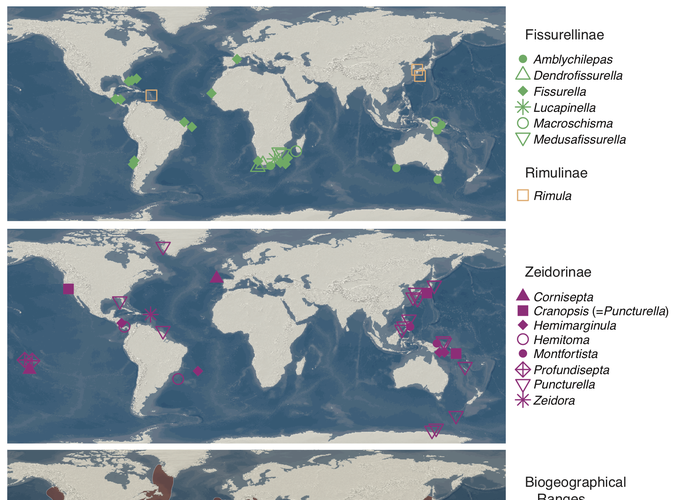Marine gastropods are widely distributed in the oceans, occupying all kinds of habitats of an ecologically and geologically dynamic environment. They also present diverse reproductive strategies and life histories. I integrate calibrated phylogenies and geographical information on living and fossil species to infer large-scale biogeographical patterns for marine clades (Cunha et al. 2019 MPE). Although species with long-lived larval phases are expected to be better dispersers than species with direct development or short larval stages, conflicting evidence has been found. In an ongoing study, we have found surprisingly little genetic structure between populations of a limpet separated by hundreds to a couple thousand kilometers (Cunha, Pavón et al. in prep). As a Smithsonian Postdoctoral Fellow at STRI, I am comparing the population structure and dispersal capacity of different species of snails to study the spatial scale of gene flow from fine to large geographical extensions.
Marine biogeography

Marine biogeography
Publications
(2019).
Putting keyhole limpets on the map: phylogeny and biogeography of the globally distributed marine family Fissurellidae (Vetigastropoda, Mollusca).
Molecular Phylogenetics and Evolution.